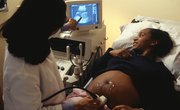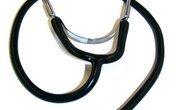Students in the health sciences have many choices about their future careers. Some might choose to become doctors, while others will opt for careers in nursing. A student's choice between majoring in nursing or pre-med will impact her required undergraduate courses. At the same time, the two programs will overlap considerably.
Practice-Specific Coursework
Because a pre-medical focus is usually not a standalone major, the coursework is more general and focused on scientific foundations. As such, there are little or no classes that emphasize the practice of actually being a doctor. Pre-medical students usually gain these skills through internships, shadowing and other extracurricular experiences. For nursing students, however, much of their coursework focuses on the practice of being a nurse, because for many students their BSN or other bachelor's-level nursing major will be their final degree. Courses might include specific topics such as "Nursing Care of Patients with Complex Needs."
Biological Foundations
Both nursing and pre-medical studies require significant coursework in biology and the life sciences. Nursing typically requires more applied life science coursework like anatomy and physiology, or topics like bioethics. Pre-med requirements are typically more foundational in scope and focus on giving students a well-rounded but complex understanding of biological concepts. Course requirements include a straightforward introductory biology course that covers laboratory work and cellular and molecular biology.
Chemistry Coursework
While both nursing and pre-med might encourage students to take a course like biochemistry, typically a nursing program will be much less chemistry-intensive. The nursing bachelor's programs at Fairleigh Dickinson University and the University of Michigan, for example, require only a single broad and applied chemistry course, like "Chemistry for Health." Pre-med, on the other hand, is more rigorous in its chemistry content and will expect students to complete courses through organic chemistry. This includes more than one course in organic chemistry, preceded by one in introductory chemistry, and at least one lab component.
Non-Science Classes
Both nursing and pre-med require some non-science coursework, but like other curricular differences, the nursing work will be more professionally applied than the pre-med courses. Nursing programs, for example, require courses like Healthcare Management. At the same time, both degrees expect students to be well-rounded and will require some sort of English or other humanities course. In the pre-med case, this is usually two courses, and a writing intensive course is preferred because competent writing is valued by medical schools. Both nursing and pre-med also expect some social science coursework, with psychology being the most relevant.
Related Articles
References
Writer Bio
Kevin Wandrei has written extensively on higher education. His work has been published with Kaplan, Textbooks.com, and Shmoop, Inc., among others. He is currently pursuing a Master of Public Administration at Cornell University.











